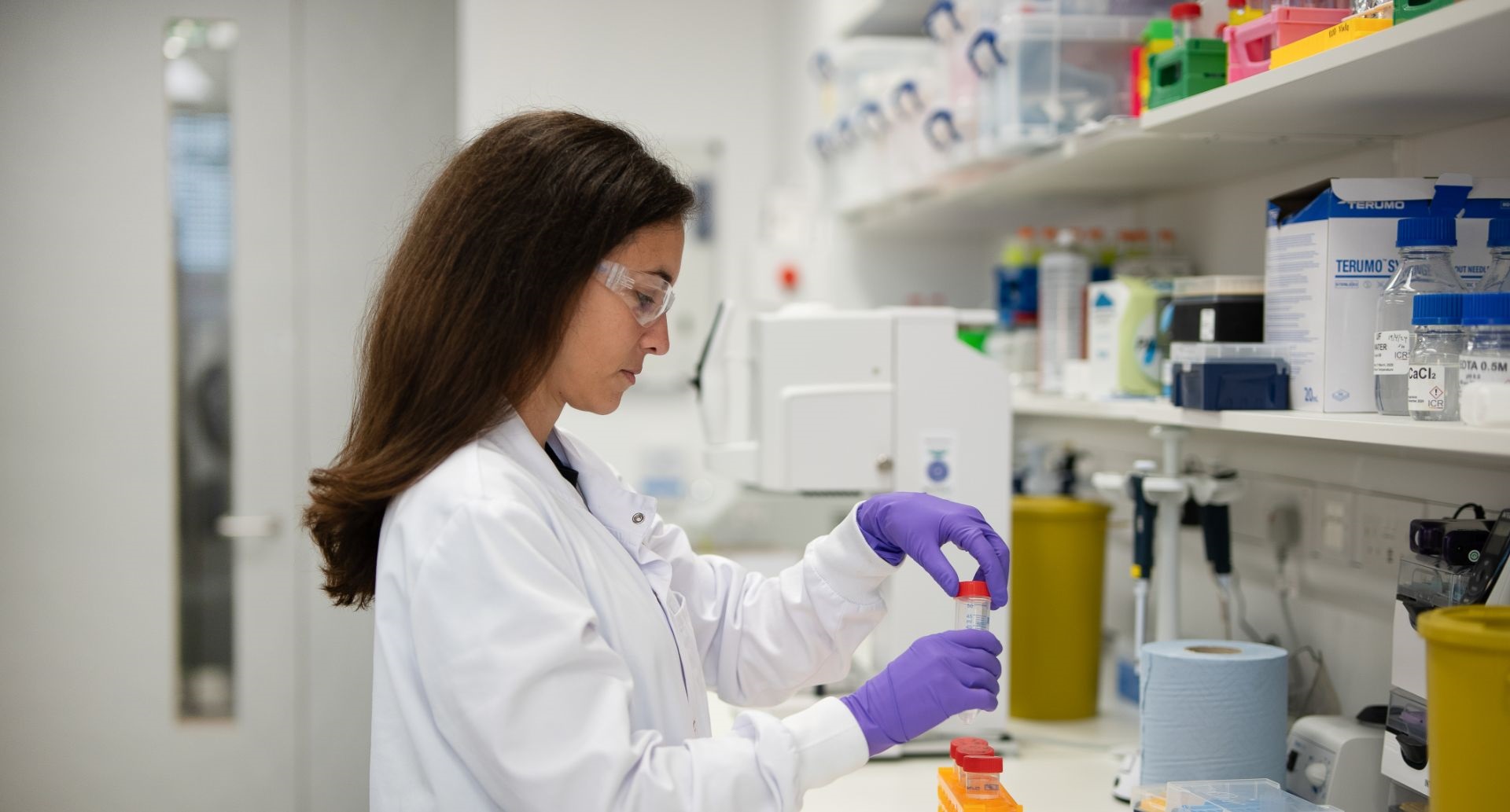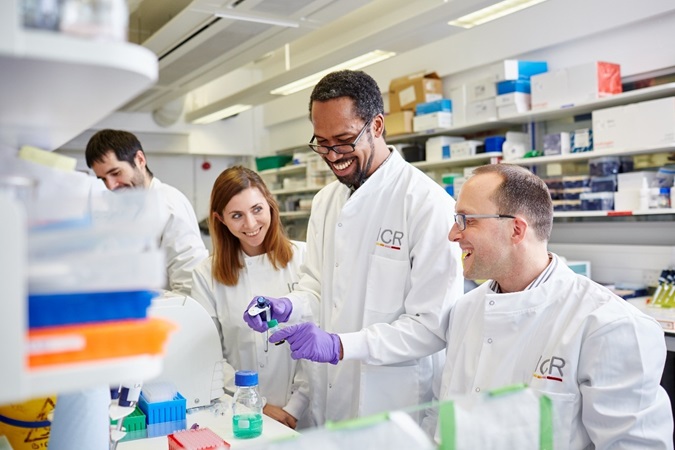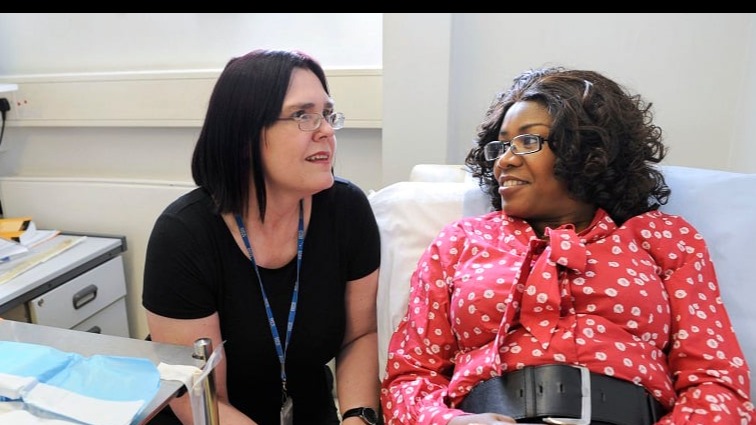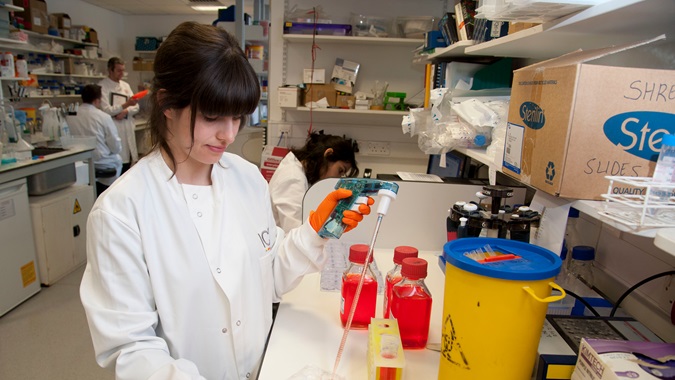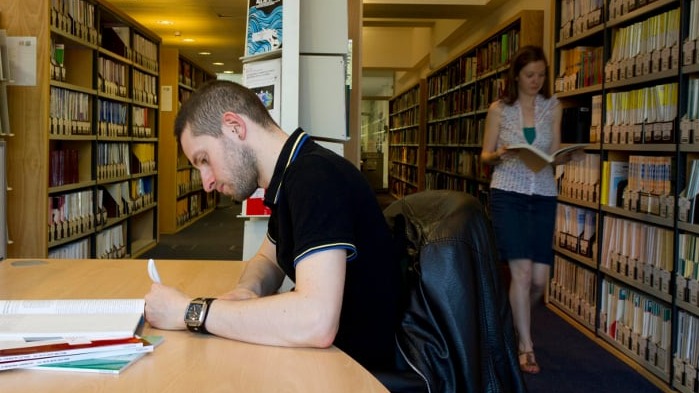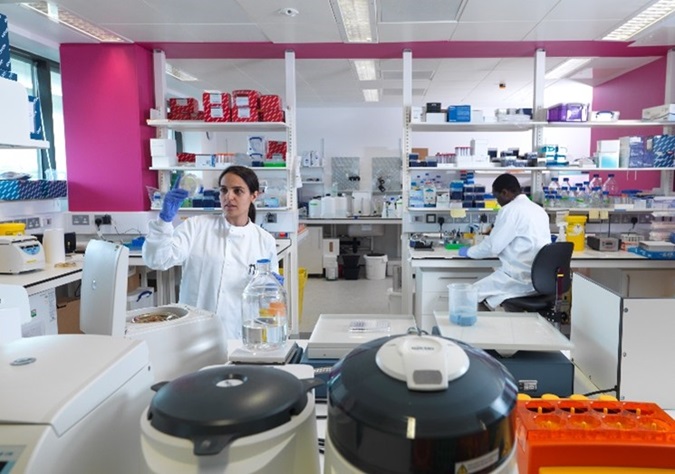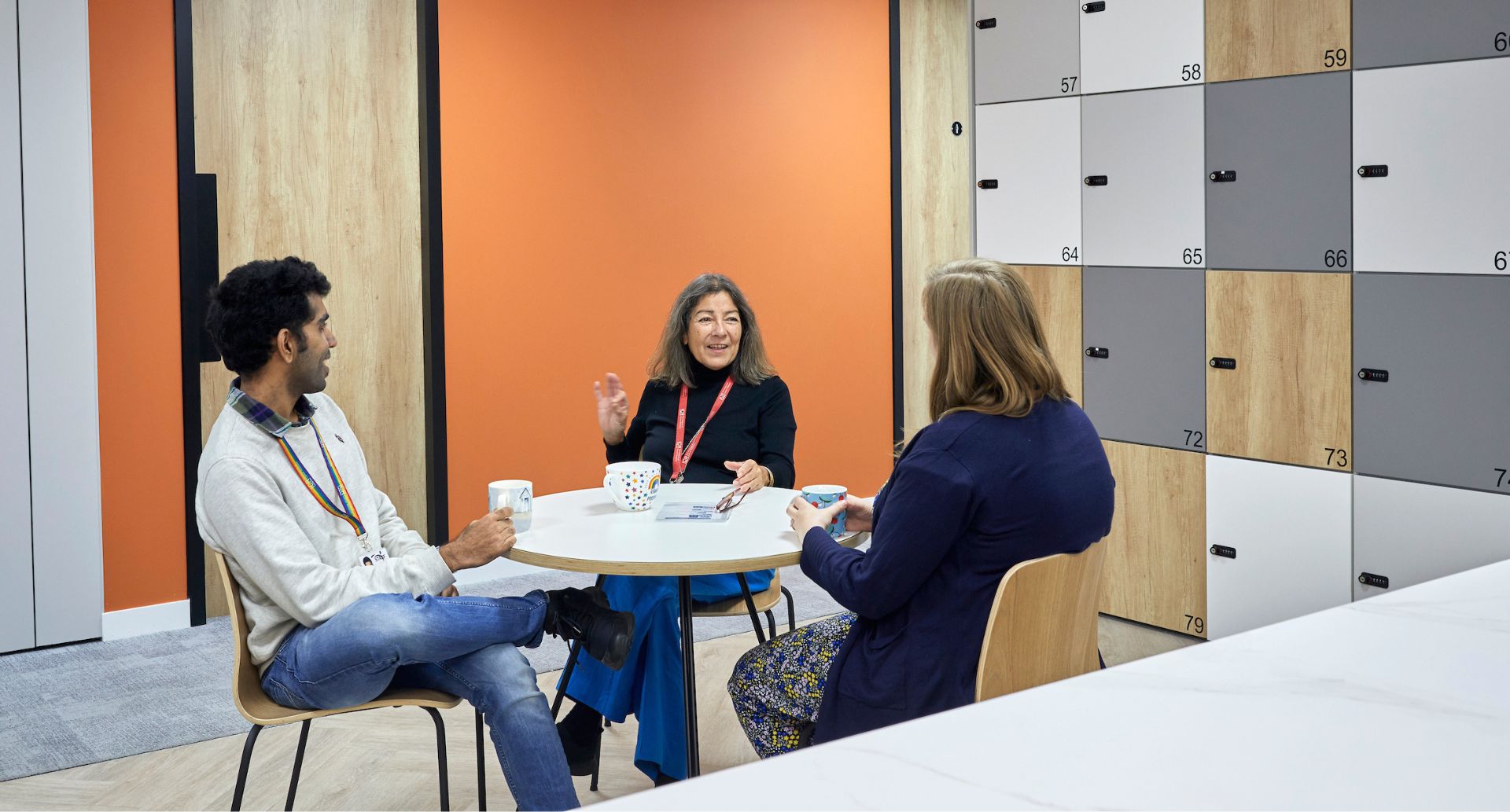Varun Ramaswamy is a third-year PhD student at the ICR. He is working on a collaborative project between the Division of Cancer Therapeutics and the Division of Structural Biology that aims to solve the 3D structure of a protein called HSET using cryo-electron microscopy and complementary biophysical techniques.
What is your educational/work background?
Why did you want to study at the ICR?
During my master’s degree, I had the opportunity to work with researchers at the ICR and collect some electron microscopy data. I was really fascinated by the technique and the facility at the ICR and kept in touch with the team about any future research opportunities.
Talk us through your typical day
You can find me running around between the Structural Biology laboratories on the fifth floor where I perform biophysical experiments and the Electron Microscopy suite in the basement. I also spend time in the office processing my images to create a 3D molecular structure of my protein of interest.
What big projects are you working on?
HSET is known to help cancer cells evade death. But this protein is completely redundant in healthy cells, making it an important anti-cancer drug target. What’s even more exciting is this protein can literally “hop” within the cell! As a structural biologist, I find that really intriguing to explore.
What’s the best thing about working at the ICR?
A healthy, supportive and professional working environment that allows me to perceive the impact of my research in the big picture of an anti-cancer drug discovery pipeline.
How do you take part in life at the ICR outside your studies?
I am lucky to be working across both the Sutton and the Chelsea sites, so I always have people to hang out with during lunch or after work in a park/pub. Also, the student committee comes up with great ideas for socials to ensure we stay in touch with each other.
What opportunities has studying at the ICR given you?
ICR has given me several opportunities to communicate my science in different ways- to scientific and non-scientific audiences, internal and external talks, oral presentations or written chats. These challenging experiences have allowed me to grow as a scientific communicator and build a network with professionals in the UK.
What’s your favourite part of life at the ICR?
Meeting and working with people who are as passionate and excited about discussing science as I am.
What do you do to unwind?
I mostly just make music or read comic books. There are some days where I do nothing except browsing through YouTube videos. Before lockdown, I used to play squash in the Sutton site and I hope to do so again soon.
